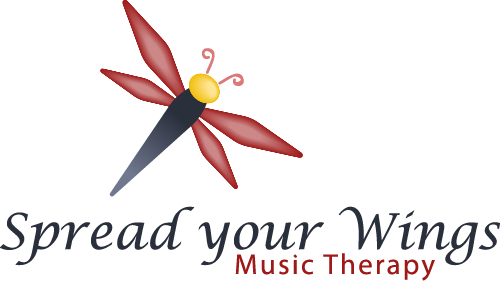Canadian Association of Music Therapists
About Music Therapy
What is Music Therapy?

“Music therapy is a discipline in which credentialed professionals (Music Therapist Accredited) use music purposefully within therapeutic relationships to support development, health, and well-being. Music therapists use music safely and ethically to address human needs within cognitive, communicative, emotional, musical, physical, social, and spiritual domains.”
What is the difference between Music Therapy and Music Education?
Music Therapy
Music Education
Music therapists require specialized training and education.
Private music teachers do not require specialized training.
Music therapists work towards emotional, cognitive, interpersonal, physical, or spiritual goals.
Private music teachers work towards musical goals.
Music therapists conduct assessments, develop individualized treatment plans, evaluate the progress of therapy and make adjustments as needed, and write progress notes.
Private music teachers may choose to complete lesson plans.
Music therapists may work in collaboration with an interdisciplinary team to provide the best care for clients.
Private music teachers may work with classroom teachers and parents to provide the best teaching style for students.
Music therapy can be an essential part of an individual’s development, care, and overall well-being.
Music education can be an essential part of an individual’s learning, development, and overall well-being.
Populations
Reasons for seeking music therapy
- Cancer care
- Burn care
- Pain management
- Surgical and procedural support
- Brain injuries
- Respiratory care
- General inpatient care
- Palliative care
Common goals
- Relieve pain
- Reduce heart rate and respiratory rate during medical procedures
- Enhance freedom of expression
- Reduce fear
- Decrease anxiety
- Promote positive, playful, and supportive interactions
- Foster independence
- Caregiver support
Common interventions
- Music listening
- Music and art
- Music games
- Music relaxation
- Spontaneous music-making
- Singing preferred songs
- Songs of kin
- Song writing
Reasons for seeking music therapy
- Autism
- Down syndrome
- Intellectual and developmental disabilities
- Developmental speech and language disorders
- Attentional deficits
- Learning disabilities
- Behavioural and interpersonal difficulties
- Sensory impairment
- Physical disabilities
Common goals
- Increased engagement
- Promote verbal and non-verbal communication
- Promote socialization
- Increase self-awareness
- Promote academic learning
- Develop attention span
- Develop appropriate social behaviour
Common interventions
- Music education
- Singing
- Music listening
- Music games
- Instrumental improvisation
- Song creation
Reasons for seeking music therapy
- Depression
- Anxiety
- Schizophrenia
- Psychosis
- Survivors of trauma
- PTSD
- Personality disorders
- Substance use disorders
- General wellness
Common goals
- Increased self-esteem
- Increased interpersonal skills
- Stabilization in order to function in daily living
- Processing of extreme emotions
- Develop coping skills
- Process past trauma
- Promote leisure skills
- Develop abstract thinking
- Improve ability to relate to others
- Develop problem-solving skills
- Increased reality orientation
Common interventions
- Music and imagery
- Music relaxation
- Music and movement
- Music listening
- Music and art
- Improvisation
- Group drumming
- Music performance
- Lyric substitution
- Song writing
Reasons for seeking music therapy
- Dementia
- Neurodegenerative diseases
- Brain injury
- Stroke rehabilitation
- Palliative care
- Physical disability
- Caregiver support
Common goals
- Develop breath support
- Support emotional expression
- Encourage consistent environmental responses
- Develop communication skills
- Gait development
- Support memory retrieval
- Decrease agitation
- Support activities of daily living
Common interventions
- Music and movement
- Music relaxation
- Musical life review
- Musical sensory stimulation
- Music improvisation
- Lyric analysis
- Songwriting
- Singing familiar songs
- Therapeutic music education

For more information about music therapy, visit the Canadian Association of Music Therapists
Contact us to determine whether music therapy is right for you
